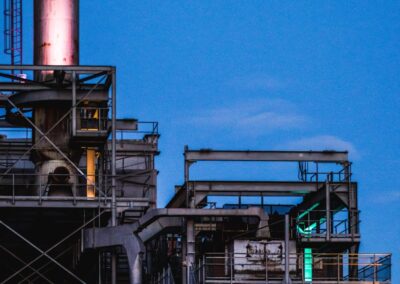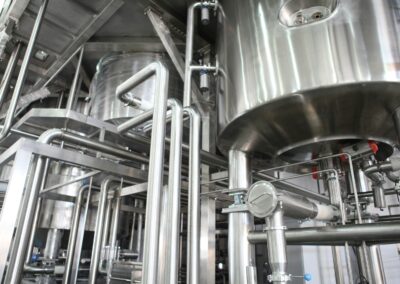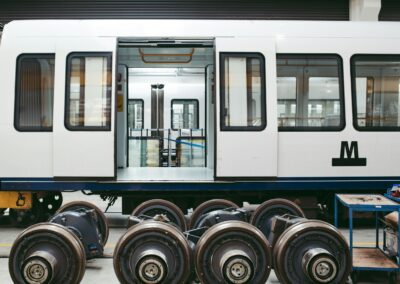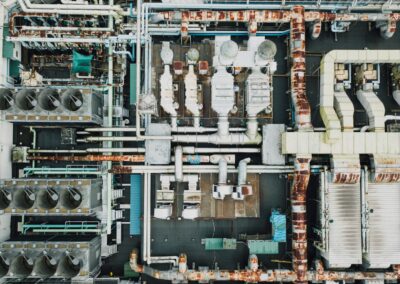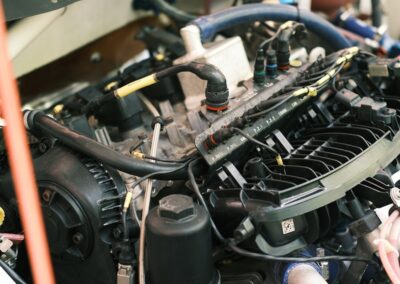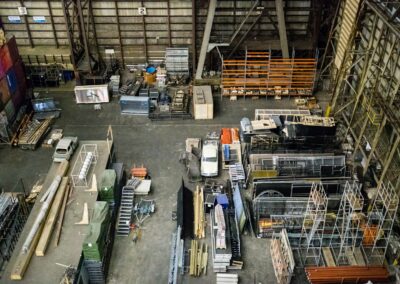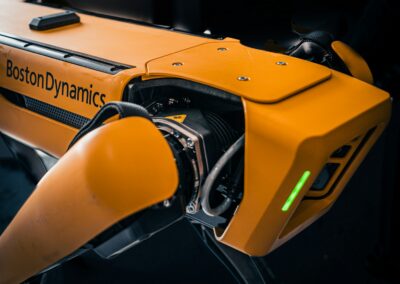Navigating ML-Driven Predictive Maintenance Challenges in the GCC’s Industrial Sectors
The Complexities of Implementing ML-Driven Predictive Maintenance
Implementing ML-driven predictive maintenance challenges is a significant step forward for industries in Saudi Arabia and the UAE, yet it is not without its hurdles. Industrial settings in these rapidly developing regions are often characterized by a blend of modern and legacy systems, making the integration of advanced technologies like machine learning (ML) a complex task. The challenge lies in the seamless incorporation of ML algorithms into existing maintenance protocols, which requires a deep understanding of both the technological and operational aspects of the industry. Additionally, the high initial costs associated with deploying these advanced systems can be a deterrent, especially for small to medium-sized enterprises (SMEs) that operate on tighter budgets.
In Riyadh and Dubai, where industrial growth is a cornerstone of economic development, overcoming these challenges is critical for maintaining the competitiveness of local businesses. The integration of ML-driven predictive maintenance systems necessitates a substantial investment in both time and resources. Companies must ensure that their workforce is adequately trained to manage and operate these sophisticated tools, which often involves a steep learning curve. This is where effective change management plays a crucial role. By implementing structured change management strategies, companies can facilitate smoother transitions and minimize resistance from employees, ensuring that the new systems are adopted effectively and deliver the anticipated benefits.
Another major challenge is the availability and quality of data required for effective predictive maintenance. ML algorithms rely on large datasets to identify patterns and predict potential failures accurately. However, in many industrial settings, data collection processes are either inadequate or fragmented, leading to incomplete or inaccurate data. This can significantly undermine the effectiveness of the predictive maintenance system. Addressing this issue requires a concerted effort to upgrade data collection infrastructure and implement robust data management practices. In the context of Saudi Arabia and the UAE, where the focus on digital transformation is strong, industries are increasingly recognizing the importance of data quality and are taking steps to enhance their data capabilities.
Strategic Solutions for Overcoming Predictive Maintenance Challenges
Overcoming ML-driven predictive maintenance challenges in industrial settings requires a strategic approach that encompasses both technological and human factors. One of the most effective strategies is to engage in comprehensive executive coaching and management consulting services. These services can provide business leaders with the insights and tools they need to navigate the complexities of ML integration. Executive coaching, in particular, can help leaders develop the skills necessary to drive change within their organizations, ensuring that the adoption of new technologies aligns with broader business goals. This is especially relevant in Saudi Arabia and the UAE, where leadership plays a pivotal role in steering industries towards innovation and excellence.
Another key strategy is to leverage blockchain technology to address data integrity issues. Blockchain can provide a secure and transparent way to record and track maintenance data, ensuring that the information fed into ML algorithms is both accurate and reliable. This not only enhances the performance of predictive maintenance systems but also builds trust among stakeholders, who can be confident that the data is tamper-proof and verifiable. In addition, the integration of blockchain with ML-driven predictive maintenance systems can streamline maintenance workflows, reduce administrative burdens, and ultimately lead to more efficient operations. This approach is particularly valuable in regions like Dubai and Riyadh, where the emphasis on technological innovation is driving industries to explore new ways of optimizing their operations.
Finally, the rise of the metaverse and generative artificial intelligence (AI) offers new opportunities to overcome the challenges associated with ML-driven predictive maintenance. By creating virtual environments that simulate industrial settings, companies can test and refine their predictive maintenance systems in a risk-free environment. This not only accelerates the development process but also provides valuable insights into how these systems will perform in real-world scenarios. Moreover, generative AI can be used to create synthetic datasets that supplement real-world data, helping to overcome data scarcity issues. As industries in Saudi Arabia and the UAE continue to embrace digital transformation, the metaverse and generative AI are set to play a key role in shaping the future of predictive maintenance.
#MLPredictiveMaintenance #ArtificialIntelligence #BusinessSuccess #ChangeManagement #ExecutiveCoaching #Blockchain #SaudiInnovation #UAEtech #IndustrialGrowth #LeadershipSkills #TheMetaverse




